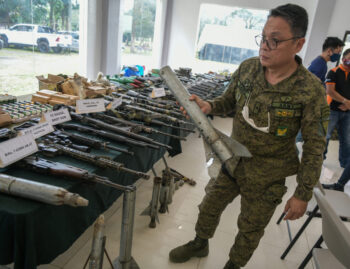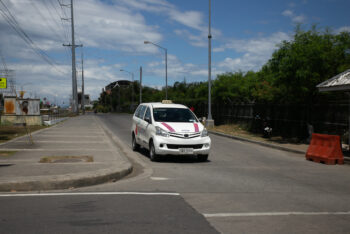
NAGA CITY (MindaNews / 9 September) – The Department of Justice (DOJ) can conduct a Philippine investigation and prosecution of a crime against humanity of willful killing against those most responsible for the extra-judicial killings (EJKs) occasioned by the “war against drugs” under then Davao City Mayor and then Philippine President Rodrigo Duterte, the same subject of a recently reaffirmed investigation by the Office of the Prosecutor (OTP) of the International Criminal Court (ICC). More so that the Philippines has withdrawn from the Rome Statute of the ICC and trial, there is still uncertainty much further down that road.
Some may find it pleasantly surprising that Justice Secretary Jesus Crispin Remulla had suggested that the ICC pass on its evidence to the Philippine government if it wants certain individuals to be held accountable, so that “we will be the ones to prosecute those who committed crimes in our country.” This was followed by his Senior Undersecretary Raul Vasquez, who appealed to the families of the Duterte drug war victims to file complaints before the government, assuring them they would be afforded state protection. “For as long as there are leads, we (will) pursue them. It does not matter if the case will involve any high official,” he said. Indeed, the two highest officials behind the drug war, former President Duterte and former Police Chief now Senator Ronald “Bato” dela Rosa, have both declared themselves willing and able genuinely to undergo trial but only before a Philippine court.
This may well be the right and just thing to do, pursuant to no less than constitutional mandates to protect the people, the life and the dignity of every human person, and to guarantee full respect for human rights, all under the rule of law and a regime of truth, justice and peace, among others. This is not simply a matter of show that the Philippines is willing and able genuinely to carry out the investigation and prosecution of a crime against humanity in the Duterte drug war.
Such Philippine investigation and prosecution could be conducted because there is an applicable domestic law, Republic Act 9851 or the Philippine Act on Crimes Against International Humanitarian Law, Genocide, and Other Crimes Against Humanity. Section 6(a) thereof pertains to the crime of humanity of willful killing “as part of a widespread or systematic attack directed against any civilian population, with knowledge of the attack.” This is equivalent to the crime against humanity of murder under Article 7.1(a) of the Rome Statute.
The focus of the Duterte drug war crime against humanity investigation and prosecution should be on whether there was a State policy to commit multiple murders such as the numerous “nanlaban” (resisting arrest) killings that were occasioned by relevant repeated presidential pronouncements and the implementing Philippine National Police (PNP) Command Memorandum Circular No. 16-2016 on the PNP Anti-Illegal Drugs Campaign Plan – Project “Double Barrel.” In fact, this is currently the subject of pending constitutionality litigation before the SC in Sr. Daño vs. dela Rosa (G.R. No. 234484) and Almora vs. dela Rosa (G.R. No. 234539). The DOJ can certainly avail of the submissions made therein as part of its case preparation.
The same goes for the submissions in the various relevant investigations or prosecutions already done and underway, including those presented by the Philippines to the ICC. Even without the ideal cooperation and submissions of the drug war victims’ families and their lawyers, the DOJ could itself institute the criminal action for the crime against humanity of murder treated in the concept of a public offense not requiring the intervention of the offended parties. It could make a preliminary investigation finding of probable cause based on the available evidence that certain high officials actively promoted or encouraged multiple commission of murder against the civilian population in the drug war. The genuineness and efficacy of this investigation depend on the will for it and for justice – by all concerned.
(MindaViews is the opinion section of MindaNews. Soliman M. Santos Jr. is a recently retired Judge of the Regional Trial Court (RTC) of Naga City, Camarines Sur. He has a trilogy of books on his court work and practice: Justice of the Peace (2015), Drug Cases (2022), and Judicial Activist (2023), all published by the lawbook publisher Central Books, Inc., Quezon City.)







